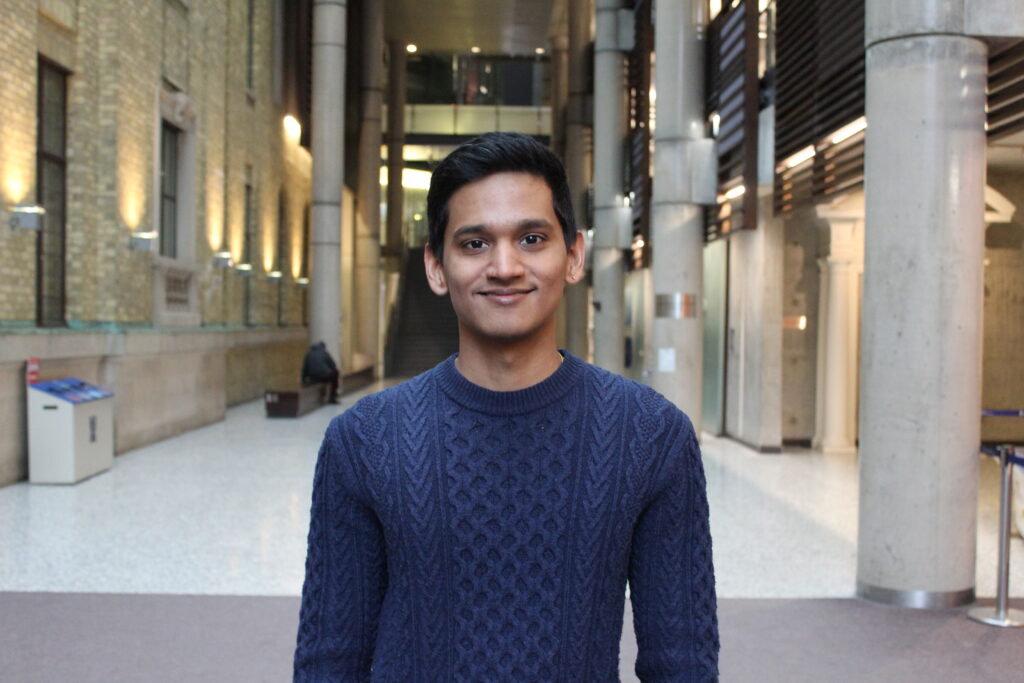Climate Positive Energy is excited to support six post-doctoral fellows from five different departments across three campuses, who will be tackling research related to Just Transitions, Carbon and Measuring, Modelling and Markets. Learn more about the CPE fellows below!

Daniela Salite
Physical & Environmental Sciences – UTSC
Daniela’s research critically analyses how governance and politics affect a socially just, inclusive, and equitable access to sustainable and affordable heating technologies in Canada. It assesses how the impacts and benefits of these technologies are distributed along different social groups. The research intends to highlight the urgency of looking beyond technological fixes and taking different and transformative approaches in the transition to these technologies to avoid socio-economic, health and other spatially unjust consequences on societies.

Goutham Rangarajan
Chemical Engineering and Applied Chemistry
Plastic waste management is a critical issue. This proposal focuses on deconstructing polystyrene waste using visible-light activated CdS photocatalysts and green solvents. The objectives are to synthesize CdS nano-catalysts, optimize reaction conditions, and evaluate the obtained phenolic products. This research aims to provide an alternative solution for upcycling polystyrene waste, reducing landfill waste and environmental pollution. The multidisciplinary approach integrates materials science, organic chemistry, and process economics principles. It aligns with sustainability goals, contributing to decarbonization and promoting a just transition in waste management.

Hosea Olayiwola Patrick
Geography, Geomatics, & Environment – UTM
The agency of the people (seen as a feeling of control over actions and their consequences) is crucial in developing policy directives for social and environmental justice that support fair and equitable access to sustainable energy infrastructure and use. Using a community-centred approach to explore individuals’ rationale, perspectives, and lived experiences on energy transition pathways, the study explores how communities and individuals react to the government’s energy/climate policy directives on energy transitions through norm-setting behaviour.

Reece Lawrence
Chemistry
“My research will be focused on the development and implementation of novel nanomaterial thin films which are designed to increase the energy harvesting capabilities of existing solar panel arrays. These thin films can be tailored to specific environmental conditions which reduce the energy lost due to the incoming light being reflected from the surface (anti-reflection) or being blocked by contaminants (self-cleaning) therefore increasing the overall performance of the solar panels.”

Samadhan Ananda Pawar
Institute for Aerospace Studies (UTIAS)
“Given the urgency to respond to climate change, it is imperative to find swift solutions for mitigating CO2 emissions from fossil fuels used in power and propulsion applications. A potential solution lies in decarbonizing fossil fuels through methane pyrolysis. We aim to conduct a comprehensive analysis of a novel thermo-catalytic reactor to efficiently perform pyrolysis of methane. Thereby, we can achieve in-situ hydrogen production and carbon capture.”

Varuni Maheshika Jayasooriya
Geography, Geomatics, & Environment – UTM
“Pavements in cities impact Urban Heat Islands (UHI) by altering heat absorption and release, affecting local microclimates. Variations in pavement attributes, such as color, material, and roughness, greatly influence urban microclimate intensity. This amplifies energy demand for nearby buildings, particularly during summer when air conditioning usage rises. My research investigates the link between pavement attributes and building energy demand in Toronto, aiming to enhance knowledge on optimal paving design to reduce the city’s energy consumption.”